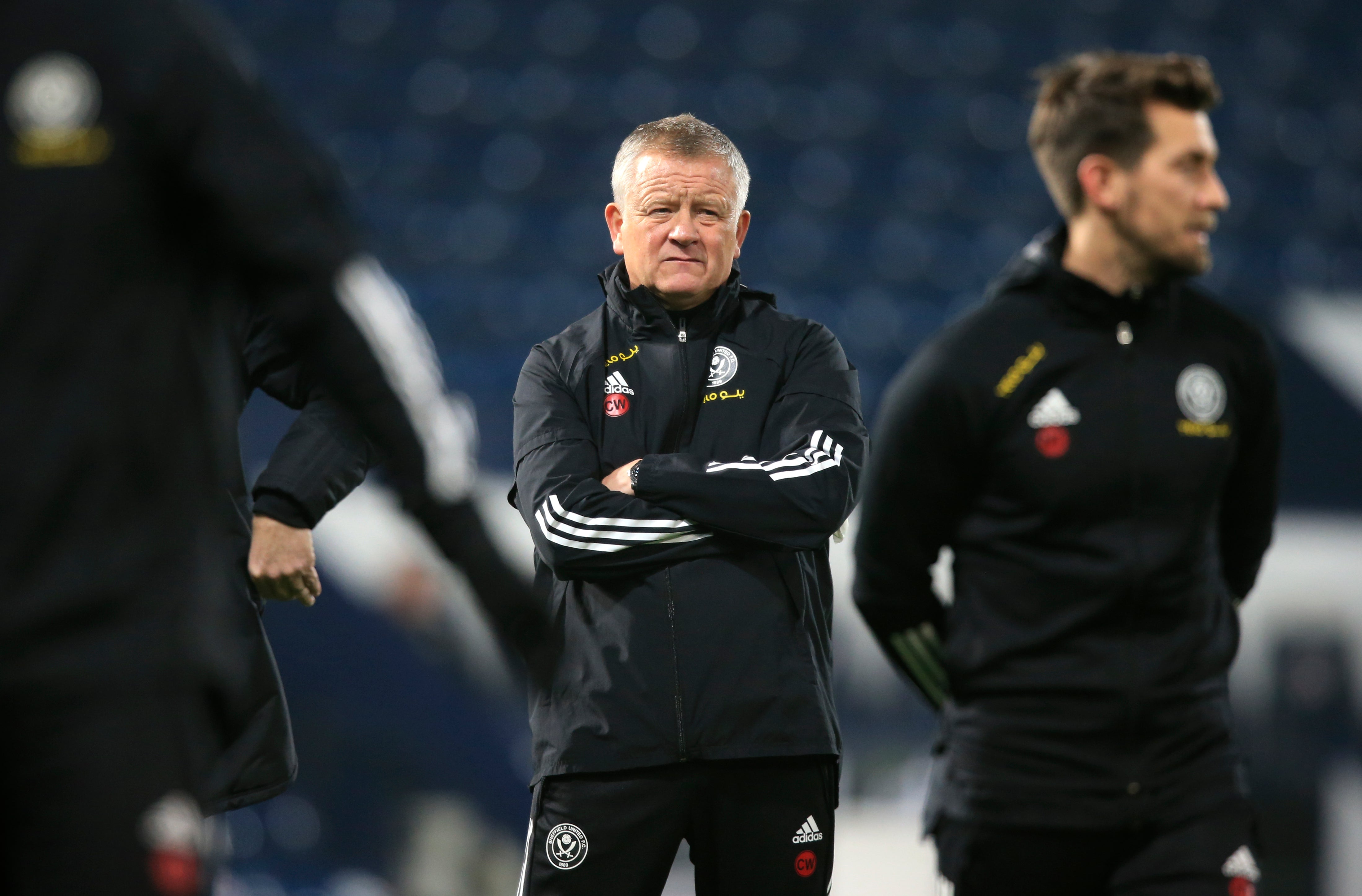What has gone wrong for Chris Wilder and Sheffield United and can it be fixed?
Fresh from a hugely impressive first season back in the Premier League, the Blades are now bottom and staring at a record-low points total

Around the Sheffield United team, Chris Wilder has been trying to keep the mood up and make sure his outward demeanour remains positive, but the talk has certainly changed.
It is no longer whether the 53-year-old should be in line for the best jobs, but whether his side are facing up to the worst season ever seen in the Premier League.
That certainly seems the likelihood after a mere two points from 14 games. No previous team has endured a record as bad as that by this stage. Even Derby County 2007-08 had six points after 14 played.
United would need to improve their record from 0.14 points per game to 0.42 to beat Derby’s paltry return of 11.
There were some who did predict this. As far back as December 2019, some lower-league figures familiar with Wilder’s teams were privately arguing this was unsustainable, that it didn’t tally with their experience. The argument was the manager lacked nous, the team quality, and that the whole idea was basic - that it was all just a freak run fired by an admittedly good team atmosphere.
This hasn’t so much been a levelling-out as a flatlining. It is second-season syndrome taken to its most severe levels.
As tends to happen in these cases, too, elements that were previously hailed as positives can be recast as negatives. Inconveniences become complaints.
Some sources point to the “basic” nature of Wilder’s training. Most Tuesdays involve a 5km run and the majority of pure football training is about organisational shape over any kind of coaching or developmental work. Assistant Alan Knill is seen as the tactical mind there, but the word around the Premier League is that United’s single innovation has been rumbled. Everyone knows how to prepare for overlapping centre-halves now.
In other words, any initial advantage a Championship-level squad had has inevitably been neutered. Reality has intervened. One view is that most of Wilder’s work is motivational and about defying reality, but that can tend to “wear thin” - especially in situations like now.
Another argument that is growing alongside this is that United should replace Wilder if they have any designs about staying in the Premier League, or taking the next step as a club.
That view can at once be both intelligent and far-sighted, but also restrictive and short-term.
Wilder’s “mere” motivational work has fostered a spirit and connection that has made this squad much more than they are.
He has significantly overachieved. United’s current results thereby aren’t failure but the inevitable flipside of overperformance.
The higher such sides go, too, the more fragile the connection can become. A few absences and it can all start to unravel.
That is exactly what has happened. Losing Dean Henderson was already seen as huge, given the influence he had on the entire team as much as the backline. The goalkeeper just made them feel secure.
Add to that a mounting injury list that started with Jack O’Connell. He is viewed as a rock, and it is sometimes forgotten that other players depend on such figures, and can be lost without them. O’Connell is just seen as someone you can always rely on. The double loss has had a multiplying effect.
And yet for all that, one source says it is still as simple as recruitment, and goals.
“There is merit in the idea that if Blades kept Henderson and had a signing like Danny Ings or Ollie Watkins, they’d probably still be mid-table with everyone still talking about what a great job Wilder is doing. Five more goals and it could look drastically different.”
That - as well as a certain resilience - can be seen in results.
Drastically unlike so many sides with similar records - and certainly those considered among the worst in the Premier League - United have not been battered, or humiliated. Their worst results are two separate three-goal defeats, against Southampton and Chelsea. The majority of their losses have been narrow. In fact, nine of their 12 defeats have been by a single goal.
That shows how competitive they can be, and how the points return is a touch misleading. Manchester United experienced that in a fraught game last Thursday, where Wilder's side really put it to them, especially late on. It wouldn’t take that much for it to improve. That could be seen in Sunday’s game against Brighton.
If Oliver Burke scores that chance, they win, and all is changed. You get a bit of psychological momentum, maybe make a signing, and players get more confident in the shape. But he didn’t, and the problems persist.
That’s how fragile it is right now. It’s why Wilder, after all, needs to maintain that positivity.
Subscribe to Independent Premium to bookmark this article
Want to bookmark your favourite articles and stories to read or reference later? Start your Independent Premium subscription today.

Join our commenting forum
Join thought-provoking conversations, follow other Independent readers and see their replies